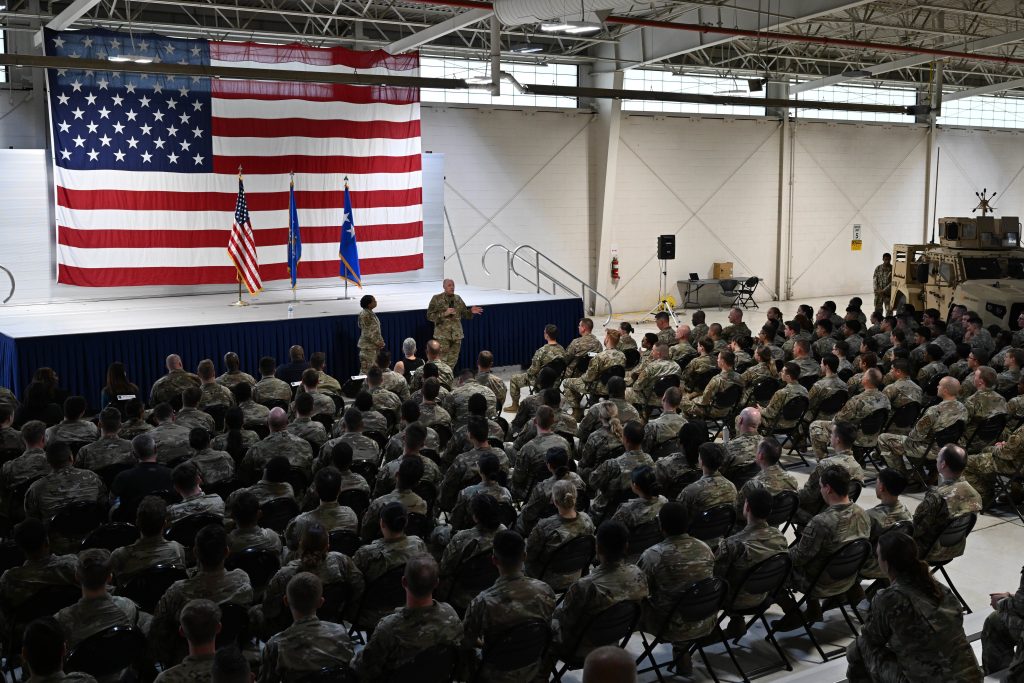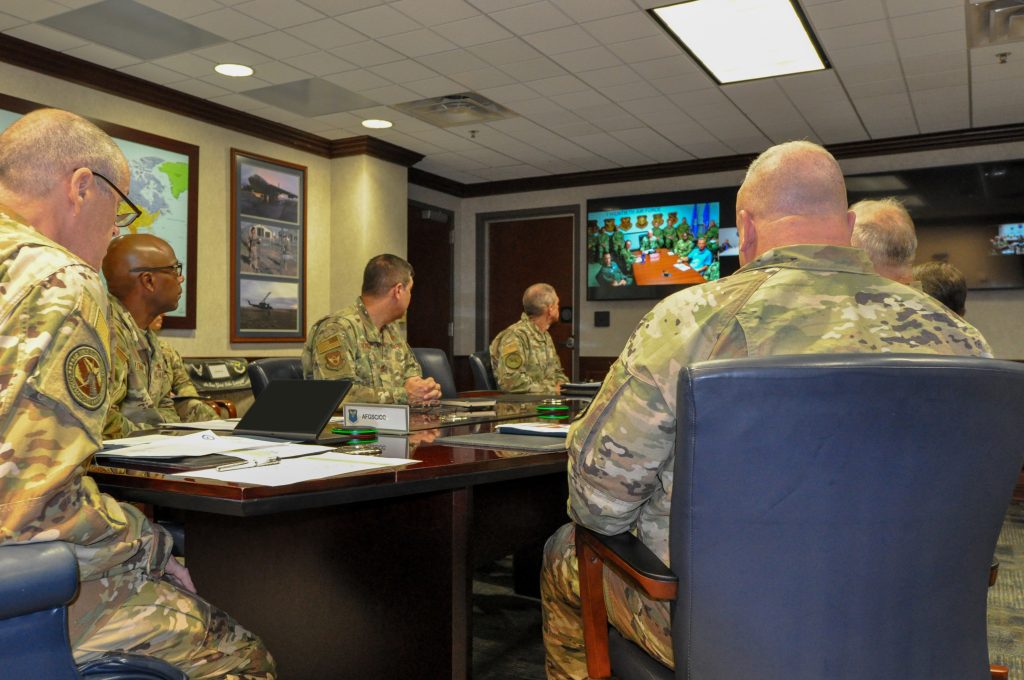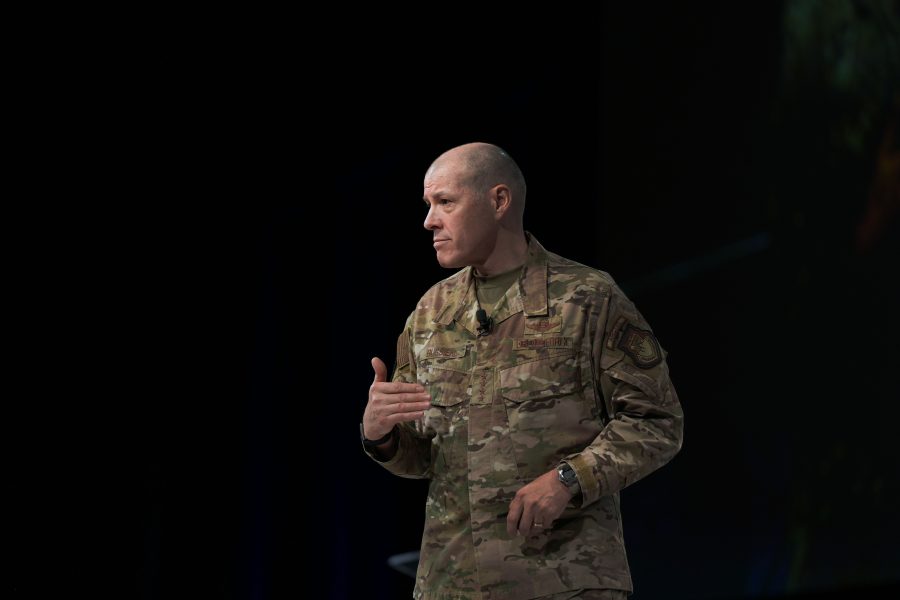The Air Force general who oversees the nation’s land-based nuclear intercontinental ballistic missile fleet said he is strongly committed to an ongoing study of cancer cases among crews who worked around ICBMs.
“I’m the commander of this mission, and if I don’t care, who does?” Gen. Thomas A. Bussiere, commander of Air Force Global Strike Command (AFGSC), told Air & Space Forces Magazine. “It’s my job.”
He also has a personal stake in the issue.
“When I was at Langley Air Force Base flying F-15s, several of my colleagues got different types of cancers, a couple of them died. I got cancer,” he said. “When I was a captain, I asked the Air Force to look into things like that. And quite frankly, you know, we were not interested in doing that.”
In 2021, the Air Force released a study on increased rates of some cancers among fighter pilots. That led to a broader 2022 DOD review of aviators’ cancer rates that drew similar conclusions.
The type of cancer Bussiere had was one of the most common among aviators, he said.
In early 2023, long-held concerns among the ICBM community came to the fore, and Bussiere ordered the Missile Community Cancer Study, led by the U.S. Air Force School of Aerospace Medicine.
Airmen who served in underground bunkers in 24-48 hour shifts, as well as those who served in missile fields as security forces, maintenance jobs, and more, have long suspected that cases of non-Hodgkin lymphoma and other health issues may be linked to their service.
But the Air Force dismissed those concerns based on studies conducted in 2001 and 2005. Bussiere said those studies were not rigorous enough, though it is too early to draw sweeping conclusions from the ongoing study.
“I read the two previous reports, and to say they were wanting in their deliberate, disciplined approach to review the issues in that career field is an understatement. I was not happy with the 2001 and 2005 reports that were done,” Bussiere said in a recent interview, speaking alongside AFGSC’s top enlisted Airman, Command Chief Master Sgt. Melvina A. Smith.
Bussiere, who has a son in the Air Force, said that he has a responsibility to Airmen who may not have high-level connections.
“What if your dad’s not a two-star or four-star?” Bussiere said. “Who’s going to be your advocate, as Airmen in the Air Force? That’s me. That’s Chief Smith. So that was kind of how I approached it.”

The study Bussiere ordered—a decision he said was strongly supported by Secretary of the Air Force Frank Kendall and then-Chief of Staff of the Air Force Gen. Charles Q. Brown Jr.—is designed in two parts. There is an epidemiological review, which involves combing through health data, and an environmental sampling process for all three Active Minuteman III ICBM bases—Malmstrom Air Force Base, Mont., F.E. Warren Air Force Base, Wyo., and Minot Air Force Base, N.D.—as well as Vandenberg Space Force Base, Calif., a Minuteman III ICBM test launch facility.
“We are also having outside independent verification of everything we do through different professional medical organizations,” Bussiere said. “That’s part of being transparent and credible, is that you don’t just go, ‘Well, I looked in the mirror and I’m good.’”
So far, the study team has found indications of higher rates of prostate cancer and breast cancer—but not higher rates of non-Hodgkin Lymphoma—and some hazardous chemicals at ICBM bases, though service officials caution they have only examined a limited pool of Airmen’s health records so far.
Global Strike Command has shared regular updates on the study through town halls with Active members of the force or other individuals currently tied to the military. But reaching veterans is a tougher task.

“We’ve had great participation,” Bussiere said. “It’s a little more complicated for people that have separated or retired. For that, we’ve used the missile associations, keeping them informed. We’ve used our public-facing portal platform that has all the information in the studies and press releases.”
Recently, however, Bussiere said the decision was reached to open the town halls up using video teleconferences such as Microsoft Teams or Zoom, in addition to updating nonprofit associations of former missileers and posting information and slides from the town halls online.
“We’re going to transition into a platform that people that are not in the government or not in a federal VTC system can dial-in for our town halls so that we can keep those folks updated,” he said.
As for current Airmen, Air Force Global Strike Command says it is confident it has been open enough to make people feel comfortable finding out information and reaching out to their commanders.
“They trust the fact that we’re pushing information to them, and saying, ‘Give me all your questions,’ so we can answer them,” Smith said.

